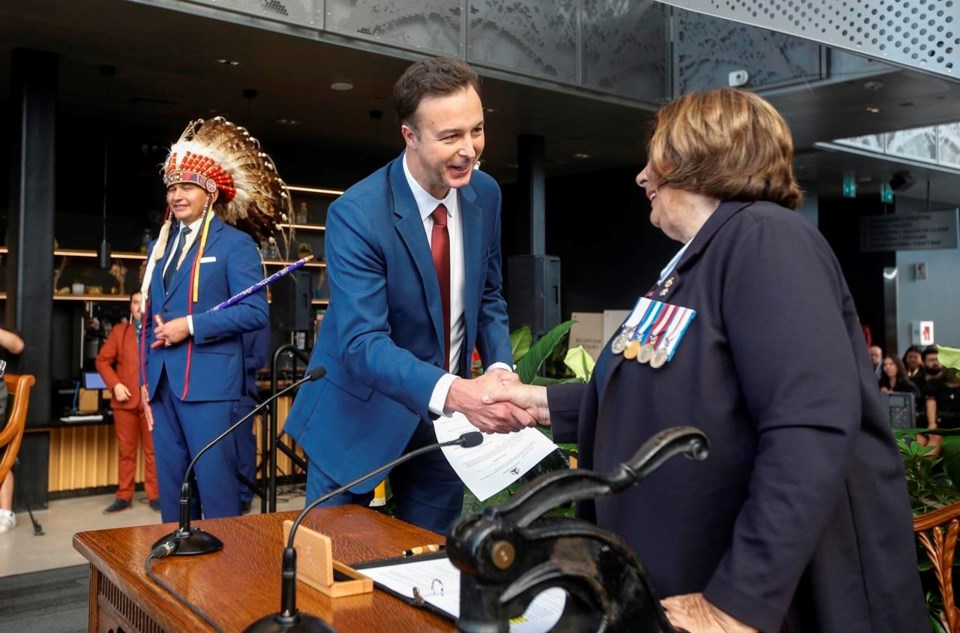WINNIPEG — The Manitoba government and the head of Manitoba Hydro, the province's Crown energy corporation, are at odds over ways to meet growing electricity demand, and the minister responsible is not saying whether he has full confidence in the corporation’s president and chief executive officer, Jay Grewal.
The rift began earlier this week, when Grewal told the Manitoba Chambers of Commerce the province could need new energy generation as early as 2029 and would also look for ways to encourage people to curb consumption.
The corporation plans to reach out to independent producers for wind energy and other sources and is considering ways to reduce demand at peak times, such as charging consumers different rates at different times of the day, Grewal said.
The NDP government has since made it clear it is opposed to both those ideas.
“As it relates to the development of new energy resources, we want those to be publicly generated,” Adrien Sala, finance minister and minister responsible for Manitoba Hydro, said Friday.
The government is also not interested in exploring “surge pricing or demand response options,” Sala said.
Sala did not directly respond when asked whether he has full confidence in Grewal and whether she will continue in her position. He would only discuss the board of directors.
“We have full confidence in our board and our new chair to ensure that we’re moving forward in meeting our energy needs as a province in a good way that ensures, again, reliability, affordability and that those energy resources are publicly owned," he said.
The Opposition Progressive Conservatives said Grewal outlined a clear plan to address energy needs at a time when the utility is deeply in debt.
“She knew her job, ultimately, could be on the line here. But she chose to make those comments publicly anyway because, regardless of political party or ideology, she believes that that’s the right path to bring this Crown corporation into the future,” Grant Jackson, Tory hydro critic, said.
The NDP has not always been opposed to private energy generation. Under a previous NDP government more than a decade ago, Manitoba Hydro signed deals for wind farms at two locations in southern Manitoba involving private firms. They continue to generate power for the province, as does a solar energy farm established by Fisher River Cree Nation.
Manitoba Hydro is still dealing with the financial effects of its last big construction push. Its debt tripled over 15 years as it built two megaprojects: the Bipole III transmission line and the Keeyask generating station. The projects ran a combined $3.7 billion over budget.
Grewal, who was appointed by the former Tory government in 2019, was not available for an interview Friday. She said earlier in the week the time and cost of building another generating station is part of the reason why Manitoba Hydro is planning to look for independent producers.
The NDP government campaigned on keeping all aspects of Manitoba Hydro public en route to winning the provincial election in October. Shortly after, it replaced most board members.
Sala said it's too early to say what kind of new generating options the province might look at, such as building its own wind farm.
Sala has also promised to freeze electricity rates for consumers for one year. He would not set a timeline Friday or say whether it would be done before the next election, scheduled for 2027.
"We will speak more about this later, as we see how things progress at Hydro."
This report by The Canadian Press was first published Feb. 2, 2024
Steve Lambert, The Canadian Press


